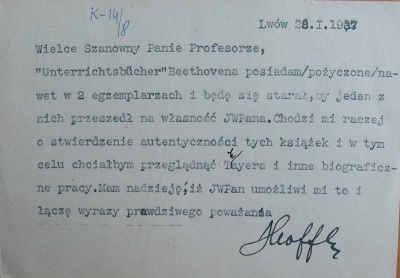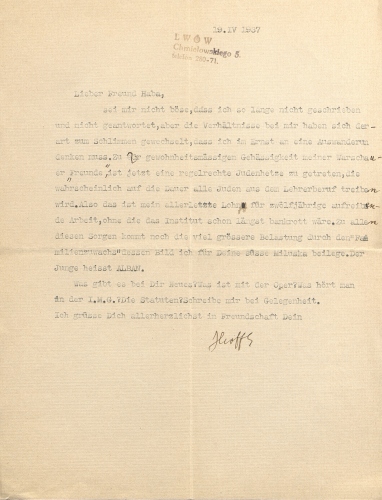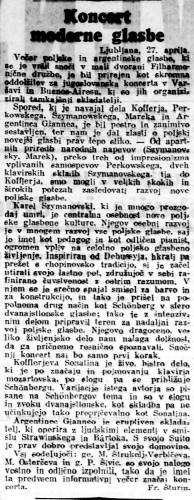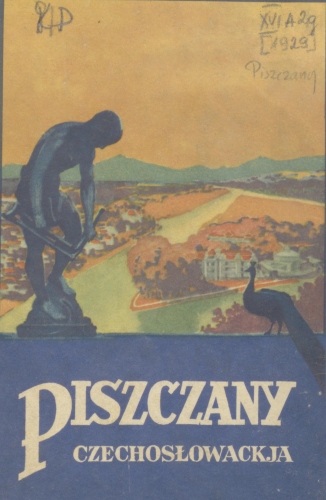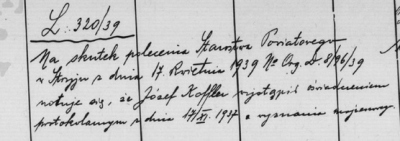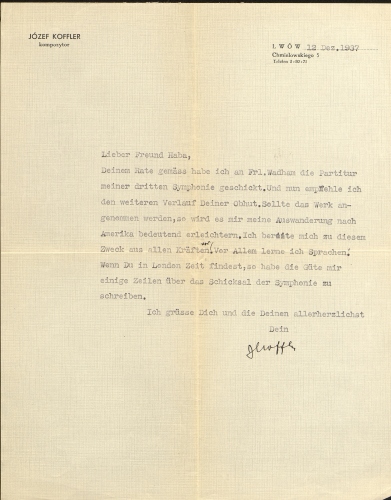January
Echo prints Koffler’s unsigned text titled Ahura and Shahura Mazda [Ormuz i Szarmuz], in which the author points out inaccuracies and imprecisions in the fifth issue of Warsaw periodical Muzyka Polska.
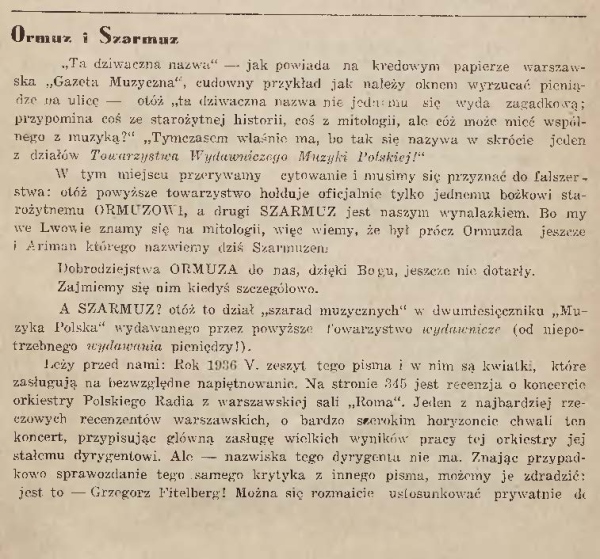
At 21:40, Radio Luxembourg broadcasts a symphony concert during which the Orchestre de Radio Luxembourg, conducted by Henri Pensis, performs Józef Koffler's Symphony No. 1, Op. 11.
Koffler informs Chybiński that he has undertaken to write a book titled Klassische Musiklehre auf Grund der Unterrichtsbucher Ludwig van Beethovens; mit Anhang: klassische Form – und Kompositionslehre entwickelt an Hand der Klaviersonaten Beethovens.
He requests access to the Institute of Musicology so that he can ‘take notes and copy fragments’.
In Echo, Koffler publishes a text titled The Duodenum in ‘Muzyka Polska’, a response to Stefan Kisielewski’s critical appraisal of Piano Variations, Op. 23 published in Muzyka Polska. The last issue of the periodical Echo comes out at the end of March.
Koffler writes the following words to Alois Hába:
[...] do not be angry with me for not writing to you and replying for so long. My situation has deteriorated to such an extent that I am seriously considering emigration. My Warsaw ‘friends’ have now added open anti-Semitism to their usual spite. This will probably in the long run eliminate all Jews from the teaching profession. This, then, is my final [!] reward for twelve years of exhausting work, without which the Institute would have gone bankrupt long ago. Apart from all these worries, there is a much greater burden in the form of ‘a new family member’, whose photograph I enclose for your sweet Miluška. The boy’s name is ALBAN […].
A concert of contemporary Polish music is held in Ljubljana’s Little Philharmonic venue. The programme comprises pieces by Koffler, Czesław Marek, Karol Szymanowski, Piotr Perkowski, as well as Argentinian composer Luis Gianneo.
Koffler writes a postcard to Hába, asking him to help him obtain partial funding for a treatment in the spa town of Pistyan (Piešťany, Slovakia), which he intends to undergo to fight his nagging arthritis. The spa is famous for its unique hot springs and thermal sulphur mud used in diseases of the locomotor system. It is unknown whether he eventually underwent such therapy.
This year Koffler spends another holiday at the ‘Excelsior’ sanatorium in Iwonicz Zdrój, where he becomes more closely acquainted with lawyer and musicologist Adam Mitscha, a PTM Conservatoire lecturer in Lwów in 1926–1929, later on the faculty of the State Music Conservatoire in Katowice. Mitscha recalled their stay in Iwonicz-Zdrój as follows:
It was only then that I had a chance to get to know him [Koffler] more closely. He is a cultured, intelligent and witty man. We talked a lot about dodecaphony.
Koffler informs Hába in a letter that he has submitted his Symphony No. 3 to the ISCM festival jury:
Following your advice, I have sent the score of my Symphony No. 3 to Miss Wadham. I now command its further fate to your care. If the work is accepted, it will significantly help me in emigration to America. I am preparing for this purpose as best I can. First and foremost, I am learning languages […].
